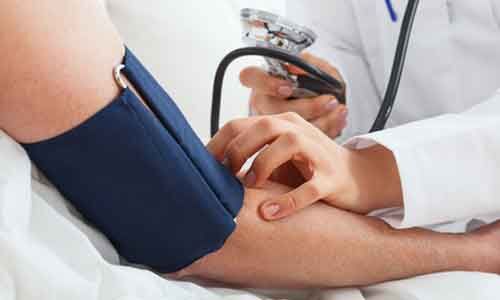- Home
- Medical news & Guidelines
- Anesthesiology
- Cardiology and CTVS
- Critical Care
- Dentistry
- Dermatology
- Diabetes and Endocrinology
- ENT
- Gastroenterology
- Medicine
- Nephrology
- Neurology
- Obstretics-Gynaecology
- Oncology
- Ophthalmology
- Orthopaedics
- Pediatrics-Neonatology
- Psychiatry
- Pulmonology
- Radiology
- Surgery
- Urology
- Laboratory Medicine
- Diet
- Nursing
- Paramedical
- Physiotherapy
- Health news
- Fact Check
- Bone Health Fact Check
- Brain Health Fact Check
- Cancer Related Fact Check
- Child Care Fact Check
- Dental and oral health fact check
- Diabetes and metabolic health fact check
- Diet and Nutrition Fact Check
- Eye and ENT Care Fact Check
- Fitness fact check
- Gut health fact check
- Heart health fact check
- Kidney health fact check
- Medical education fact check
- Men's health fact check
- Respiratory fact check
- Skin and hair care fact check
- Vaccine and Immunization fact check
- Women's health fact check
- AYUSH
- State News
- Andaman and Nicobar Islands
- Andhra Pradesh
- Arunachal Pradesh
- Assam
- Bihar
- Chandigarh
- Chattisgarh
- Dadra and Nagar Haveli
- Daman and Diu
- Delhi
- Goa
- Gujarat
- Haryana
- Himachal Pradesh
- Jammu & Kashmir
- Jharkhand
- Karnataka
- Kerala
- Ladakh
- Lakshadweep
- Madhya Pradesh
- Maharashtra
- Manipur
- Meghalaya
- Mizoram
- Nagaland
- Odisha
- Puducherry
- Punjab
- Rajasthan
- Sikkim
- Tamil Nadu
- Telangana
- Tripura
- Uttar Pradesh
- Uttrakhand
- West Bengal
- Medical Education
- Industry
High BP drugs safe for patients with COVID-19 disease, finds Study

In a study of 12,594 patients it has been found that common high blood pressure drugs did not increase the risk of contracting COVID-19 - or of developing severe disease .
Led by researchers from NYU Grossman School of Medicine, the study found no links between treatment with four drug classes - angiotensin-converting enzyme (ACE) inhibitors, angiotensin receptor blockers (ARBs), beta blockers, or calcium channel blockers -- and increased likelihood of a positive test for COVID-19.
The study launched in response to a joint statement issued by the American Heart Association, the College of Cardiology, and the Heart Failure Society of America has been published in New England Journal of Medicine.
Further, the study found no substantial increase in risk for more severe illness (intensive care, use of a ventilator, or death) with any of the treatments in patients with the pandemic virus.
"With nearly half of American adults having high blood pressure, and heart disease patients more vulnerable to COVID-19, understanding the relationship between these commonly used medications and COVID-19 was a critical public health concern," says lead investigator Harmony Reynolds, MD, associate director of the Cardiovascular Clinical Research Center at NYU Langone Health. "Our findings should reassure the medical community and patients about the continued use of these commonly prescribed medications, which prevent potentially severe heart events in their own right."
For the study, the researchers identified patients in the NYU Langone Health electronic health record with COVID-19 test results. For each identified patient with COVID-19 test results, the team discretely extracted medical history needed for the analysis, which compared treated and untreated patients.
"Before our study, there were no experimental or clinical data demonstrating the consequences of using these medications one way or the other in people at risk for COVID-19," says senior study author Judith Hochman, MD, the Harold Snyder Family Professor of Medicine and Senior Associate Dean for Clinical Sciences at NYU Langone Health. "In terms of next steps, our plan is to use similar approaches to investigate other medications and their relationship to COVID-19 illness."
Cause for Concern
The study revolves around drugs that act on the renin-angiotensin-aldosterone hormonal system, which influences blood pressure. Central to this system is the signaling protein angiotensin II, levels of which are controlled by angiotensin-converting enzyme (ACE), say the authors. Angiotensin II narrows blood vessels to increase blood pressure, and the study drugs counter that, either by blocking ACE-induced increases in angiotensin II, or the ability of ACE to interact with its receptor signaling partners on cells.
According to the researchers, one version of ACE, angiotensin converting enzyme 2 (ACE2), is present in the outer membrane of lung cells. SARS-CoV-2, the current pandemic virus, has been shown to connect to ACE2 on lung cells, a first step toward viral infection. This led to concern in the field that ACE inhibitors and ARBs might increase or worsen COVID-19 infection. Past studies in animal models had suggested that ACE inhibitors and ARBs increase ACE2 production in other organs, but how they related to ACE2 levels in the lungs was not known.
On the other hand, ACE inhibitors and ARBs had been shown elsewhere to reduce lung injury in certain viral pneumonias, creating speculation that they might be helpful. The new study was designed to address these contradictions.
Hina Zahid Joined Medical Dialogue in 2017 with a passion to work as a Reporter. She coordinates with various national and international journals and association and covers all the stories related to Medical guidelines, Medical Journals, rare medical surgeries as well as all the updates in the medical field. Email: editorial@medicaldialogues.in. Contact no. 011-43720751
Dr Kamal Kant Kohli-MBBS, DTCD- a chest specialist with more than 30 years of practice and a flair for writing clinical articles, Dr Kamal Kant Kohli joined Medical Dialogues as a Chief Editor of Medical News. Besides writing articles, as an editor, he proofreads and verifies all the medical content published on Medical Dialogues including those coming from journals, studies,medical conferences,guidelines etc. Email: drkohli@medicaldialogues.in. Contact no. 011-43720751


